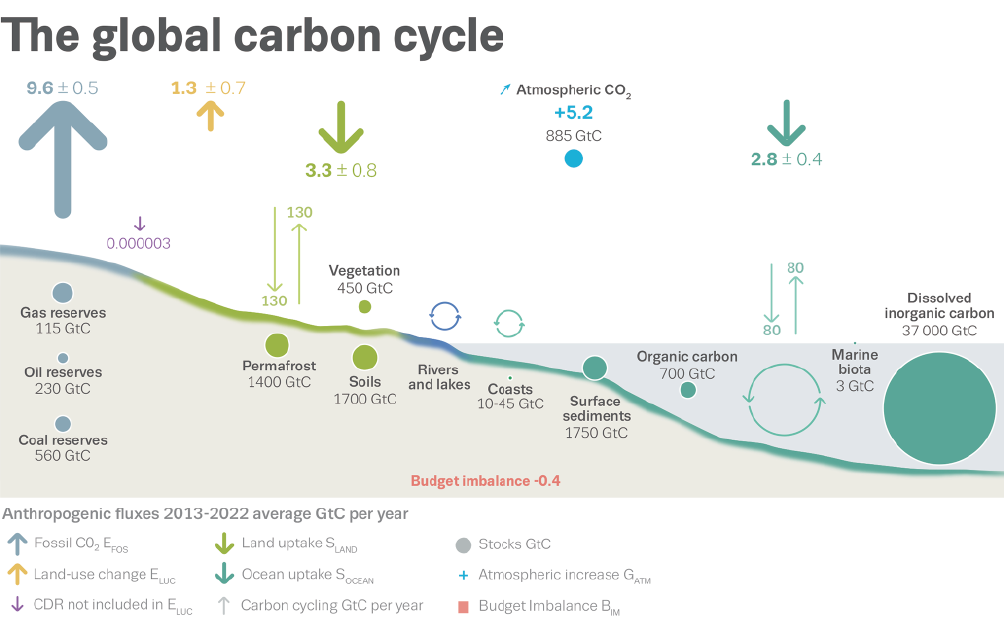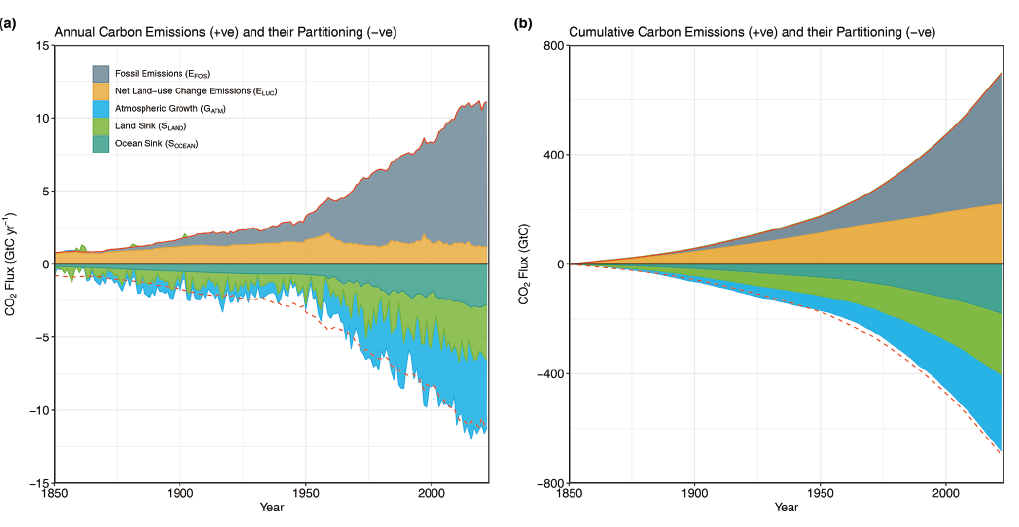The Global Carbon Project (GCP) publishes the Global Carbon Budget 2023 at COP 28 in Dubai on December 05, 2023
December 05, 2023
Press Release EN日本語要約Publication (Friedlingstein et al., 2023)


Headline: Record high in global fossil CO2 emissions set for 2023
- Global emissions from fossil use are projected to rise 1.1% in 2023 (range 0.0% to 2.1%), reaching 36.8 billion tons of carbon dioxide (GtCO2), with rises expected in all fuel types (coal, oil, natural gas). This brings fossil CO2 emissions to a record high, and 1.4% above the 2019 preCOVID-19 levels. Emissions are declining in 26 countries, representing 28% of global emissions, and emissions growth is slowing in other countries; importantly, these efforts remain insufficient to reverse the growth in global fossil fuel emissions.
- Global CO2 emissions from land-use change are projected to be 4.1 GtCO2 in 2023, continuing a small but uncertain decline over the past two decades. Anthropogenic CO2 emissions from permanent forest loss through deforestation remain too high to be offset by anthropogenic CO2 removals from reforestation and afforestation.
- Growth in total CO2 emissions – the sum of fossil and land-use change emissions – has substantially slowed down over the past decade, with a small growth in fossil emissions closely matching a small but uncertain decline in land-use change emissions. Total emissions are projected to be 40.9 GtCO2 in 2023. Continued CO2 emissions lead to a further increase of CO2 in the atmosphere and continued global warming.
- If current CO2 emissions levels persist, the remaining carbon budget for a 50% chance to limit warming to 1.5°C could be exceeded in 7 years, and in 15 years for 1.7°C. Returning global temperatures below these thresholds after they have been crossed would require a massive scale-up of carbon dioxide removal after global net zero emission has been reached.
- The atmospheric CO2 level is projected to average 419.3 ppm in 2023, 51% above pre-industrial levels. The land and ocean CO2 sinks continue to take up around half of the CO2 emissions, despite the negative impact of climate change on the sinks.

 GCP Canberra
GCP Canberra